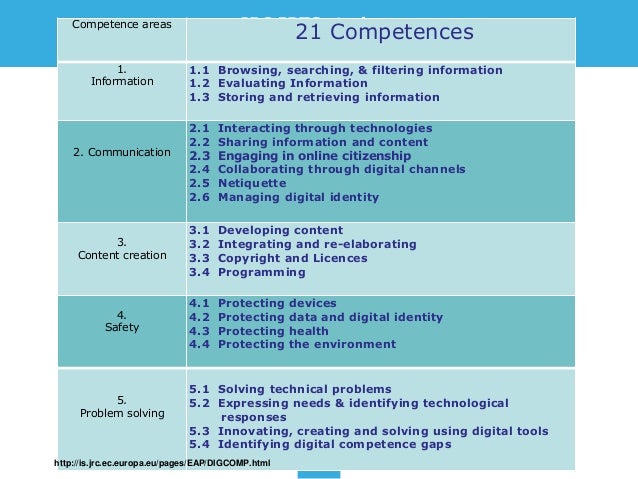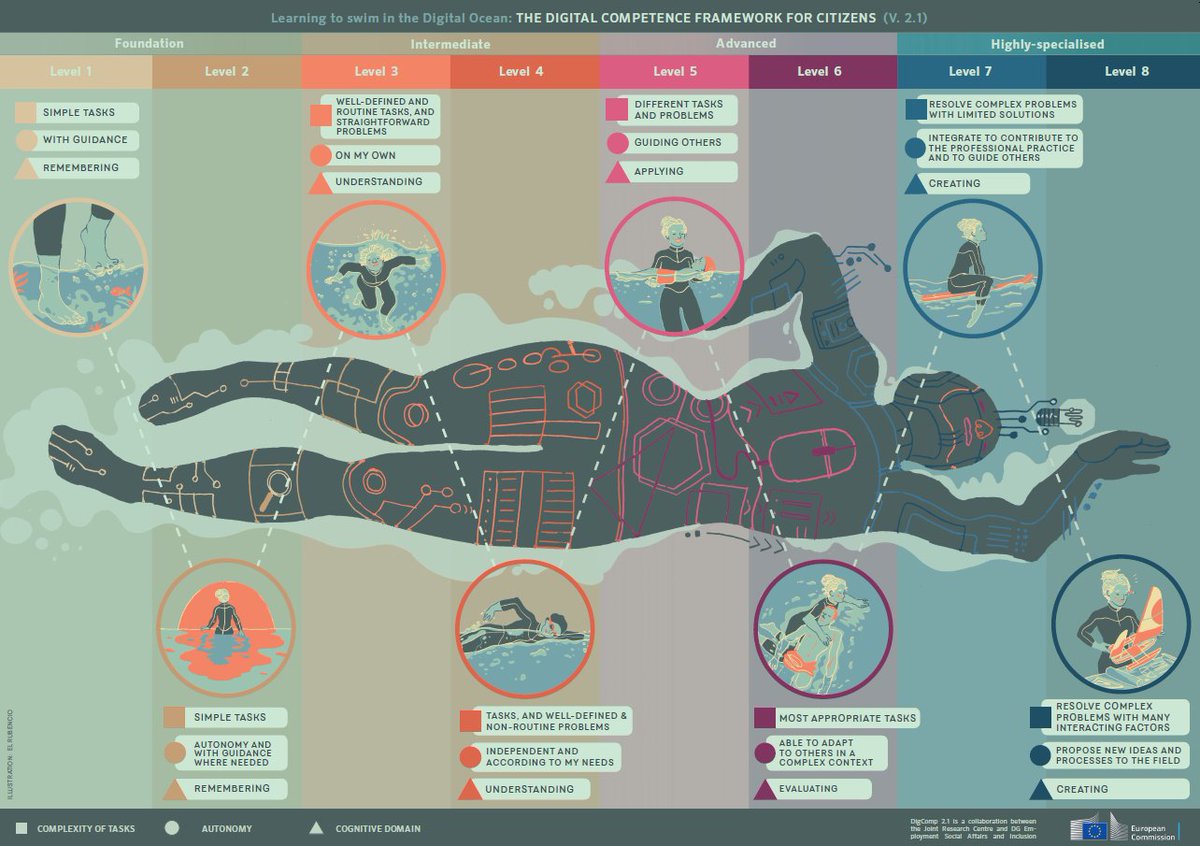The DISK project aims to develop the digital literacy of adults (Adult Education AE) with a special focus on so-called “digital immigrants” who are Digital Competence (DC) disadvantaged in society due to their lack of digital literacy. The project aims to enable them to take an active role in the digital society. Hence, the objectives are therefor creation, implementation and evaluation of a series of modules, specifically on topics of everyday life covering a “Digital Immigrants Survival Kit” (DISK), and the use of “flipped learning 3.0” as a training approach. The Digital Survival Toolbox which will be developed by the DISK Consortium has its foundation in the frameworks described as below:
This blog post focuses on digital literacy and different frameworks, which are mainly European Commission. First DigComp 2.0 is explained, second DigComp 2.1 is described, third, the special framework for digital competences for educators and learners are explored, all three are relearned to each other. Finally, the Digital Skills Toolkit by ITU is described, which even are build on the three former ones.
DigComp 2.0
The European Digital Competence Framework for Citizens, also known as DigComp, offers a tool to improve citizens’ digital competence. DigComp was first published in 2013 and has become a reference for many digital competence initiatives at both European and Member State levels. This document introduces DigComp 2.0. It constitutes phase 1 of the update of the framework which focuses on the conceptual reference model, new vocabulary and streamlined descriptors. The current document also gives examples of how DigComp is used at the European, national and regional levels. The current document also gives examples of how DigComp is used at the European, national and regional levels.
Five digital competences areas are focused:
1. Information and data literacy
2. Communication and collaboration
3. Digital content creation
4. Safety
5. Problem solving

DigComp 2.1
DigComp 2.1 is a further development of the Digital Competence Framework for Citizens. Based on the reference conceptual model published in DigComp 2.0, the European Commission now presents 8 proficiency levels and examples of use applied to the learning and employment field.
DigCompEdu
Teaching professions are confronted with rapidly changing requirements that call for a new, broader, and more demanding range of competencies than before. The ubiquity of digital devices and applications requires educators in particular to develop their digital literacy.

The European Framework For the Digital Competence of Educators (DigCompEdu) is a science-based framework that describes what it means for educators to be digitally literate. It provides a general reference framework to support the development of educational digital competences in Europe. DigCompEdu is aimed at educators at all levels of education, from early childhood to higher and adult education, including general and vocational education, special education and non-formal learning contexts. The six areas which are in focus related to digital competences are: (i) Professional engagement, (ii) Digital resources, Teaching and Learning, (iv) Assessment, (v) Empowering Learners, and (vi) Facilitating Learners Digital Competences. As can be noticed six areas are presented and even both digital competences, subject specific competences and transversal competences. In addition, the framework covers both the educators and the learners perspectives.
Digital Skils Toolkit ITU

Back to the DISK project
The partners of the Erasmus+ project “DISK” are currently collecting data on the digital world of adults in various European countries. Currently a survey is conducted aiming to understand the view of adults view on their own digital competences (selected form partner networks and countries), in order to develop suitable self-paced modules. In the survey it is especially highlighted that responders should understand that this is not a test, there are no right or wrong answers, it is important that they choose the answers they like better to describe you or your perspectives.

